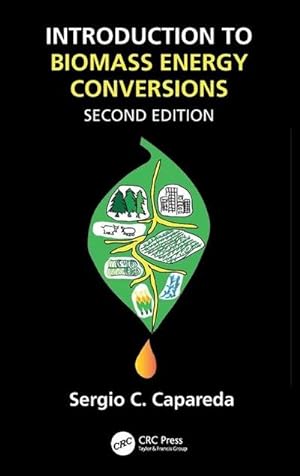Termini e condizioni generali e informazioni sul cliente / Informativa sulla privacy
I. Condizioni generali di contratto
(1) I seguenti termini e condizioni si applicano a tutti i contratti che l'utente conclude con noi in qualità di fornitore (AHA-BUCH GmbH) tramite le piattaforme Internet AbeBooks e/o ZVAB. Se non diversamente concordato, l'inclusione di uno qualsiasi dei tuoi termini e condizioni da te utilizzati sarà contestata.
(2) Un consumatore ai sensi delle segu...
Se sei un consumatore, puoi esercitare il tuo diritto di recesso seguendo le istruzioni riportate di seguito. Per "consumatore" si intende qualsiasi persona fisica che agisca per fini che non rientrano nel quadro della sua attività commerciale, industriale, artigianale o professionale.
Informazioni relative al diritto di recesso
Diritto di recesso
Hai il diritto di recedere dal presente contratto, senza indicarne le ragioni, entro 14 giorni.
Il periodo di recesso scade dopo 14 giorni dal giorno in cui
tu acquisisci, o un terzo designato diverso dal vettore e da te acquisisce, il possesso fisico dell'ultimo bene o l'ultimo lotto o pezzo.
Per esercitare il diritto di recesso, sei tenuto a informare AHA-BUCH GmbH, Garlebsen 48, 37574, Einbeck, Germany, 49 55639996039, della tua decisione di recedere dal presente contratto tramite una dichiarazione esplicita (ad esempio lettera inviata per posta, fax o posta elettronica). A tal fine puoi utilizzare il modulo tipo di recesso, ma non e' obbligatorio. Puoi anche compilare e inviare elettronicamente il modulo tipo di recesso o qualsiasi altra esplicita dichiarazione sul nostro sito web, dalla sezione "Ordini" nel "Mio Account". Nel caso scegliessi questa opzione, ti trasmetteremo senza indugio una conferma di ricevimento su un supporto durevole (ad esempio per posta elettronica).
Per rispettare il termine di recesso, é sufficiente inviare la comunicazione relativa all'esercizio del diritto di recesso prima della scadenza del periodo di recesso.
Effetti del recesso
Se recedi dal presente contratto, ti saranno rimborsati tutti i pagamenti che hai effettuato a nostro favore, compresi i costi di consegna (ad eccezione dei costi supplementari derivanti dalla tua eventuale scelta di un tipo di consegna diverso dal tipo meno costoso di consegna standard da noi offerto). Potremo trattenere dal rimborso le somme derivanti da una diminuzione del valore del prodotto risultante da una tua non necessaria manipolazione.
I rimborsi verranno effettuati senza indebito ritardo e in ogni caso non oltre 14 giorni dal giorno in cui siamo stati informati della tua decisione di recedere dal presente contratto.
Detti rimborsi saranno effettuati utilizzando lo stesso mezzo di pagamento da te usato per la transazione iniziale, salvo che tu non abbia espressamente convenuto altrimenti; in ogni caso, non dovrai sostenere alcun costo quale conseguenza di tale rimborso. Il rimborso può essere sospeso fino al ricevimento dei beni oppure fino all'avvenuta dimostrazione da parte tua di aver rispedito i beni, se precedente.
Ti preghiamo di rispedire i beni o di consegnarli a AHA-BUCH GmbH, Garlebsen 48, 37574, Einbeck, Germany, 49 55639996039, senza indebiti ritardi e in ogni caso entro 14 giorni dal giorno in cui hai comunicato il tuo recesso dal presente contratto. Il termine è rispettato se rispedisci i beni prima della scadenza del periodo di 14 giorni. I costi diretti della restituzione dei beni saranno a tuo carico. Sei responsabile solo della diminuzione del valore dei beni risultante da una manipolazione del bene diversa da quella necessaria per stabilire la natura, le caratteristiche e il funzionamento dei beni.
Eccezioni al diritto di recesso
Il diritto di recesso non si applica in caso di:
- fornitura di giornali, periodici e riviste ad eccezione dei contratti di abbonamento per la fornitura di tali pubblicazioni;
- fornitura di contenuto digitale (inclusi applicazioni, software, ebook, MP3, ecc.) mediante un supporto non materiale (per esempio un CD o un DVD) se al momento dell'inoltro dell'ordine hai espressamente consentito all'inizio dell'esecuzione accettando la perdita del diritto di recesso in conseguenza dell'inizio di esecuzione.
Modulo di recesso tipo
(Compilare e restituire il presente modulo solo se si desidera recedere dal contratto)
Destinatario: (AHA-BUCH GmbH, Garlebsen 48, 37574, Einbeck, Germany, 49 55639996039)
Con la presente io/noi (*) notifichiamo il recesso dal mio/nostro (*) contratto di vendita dei seguenti beni/servizi (*)
Ordinato il (*) /ricevuto il (*)
Nome del/dei consumatore(i)
Indirizzo del/dei consumatore(i)
Firma del/dei consumatore(i) (solo se il presente modulo è notificato in versione cartacea)
Data
(*) Cancellare la dicitura inutile.
